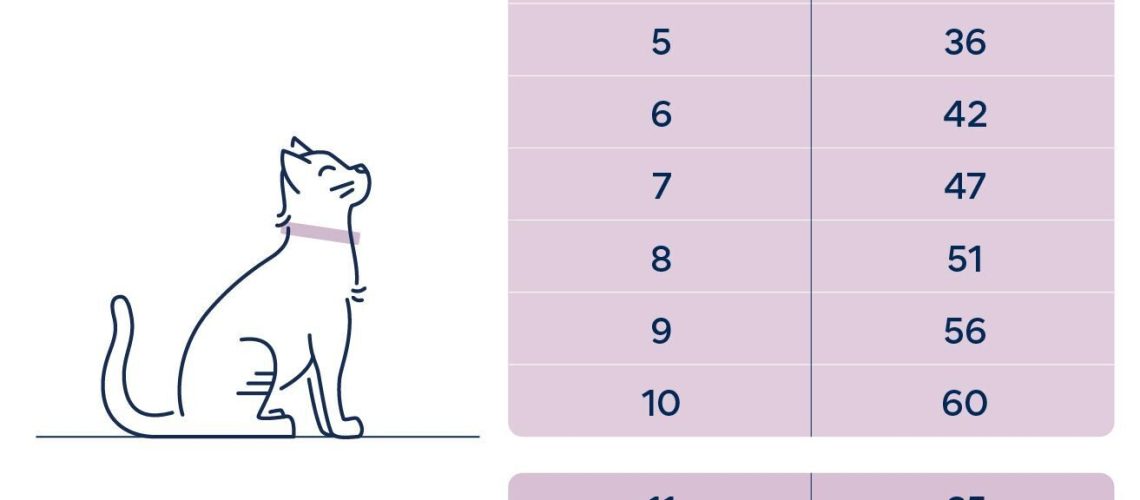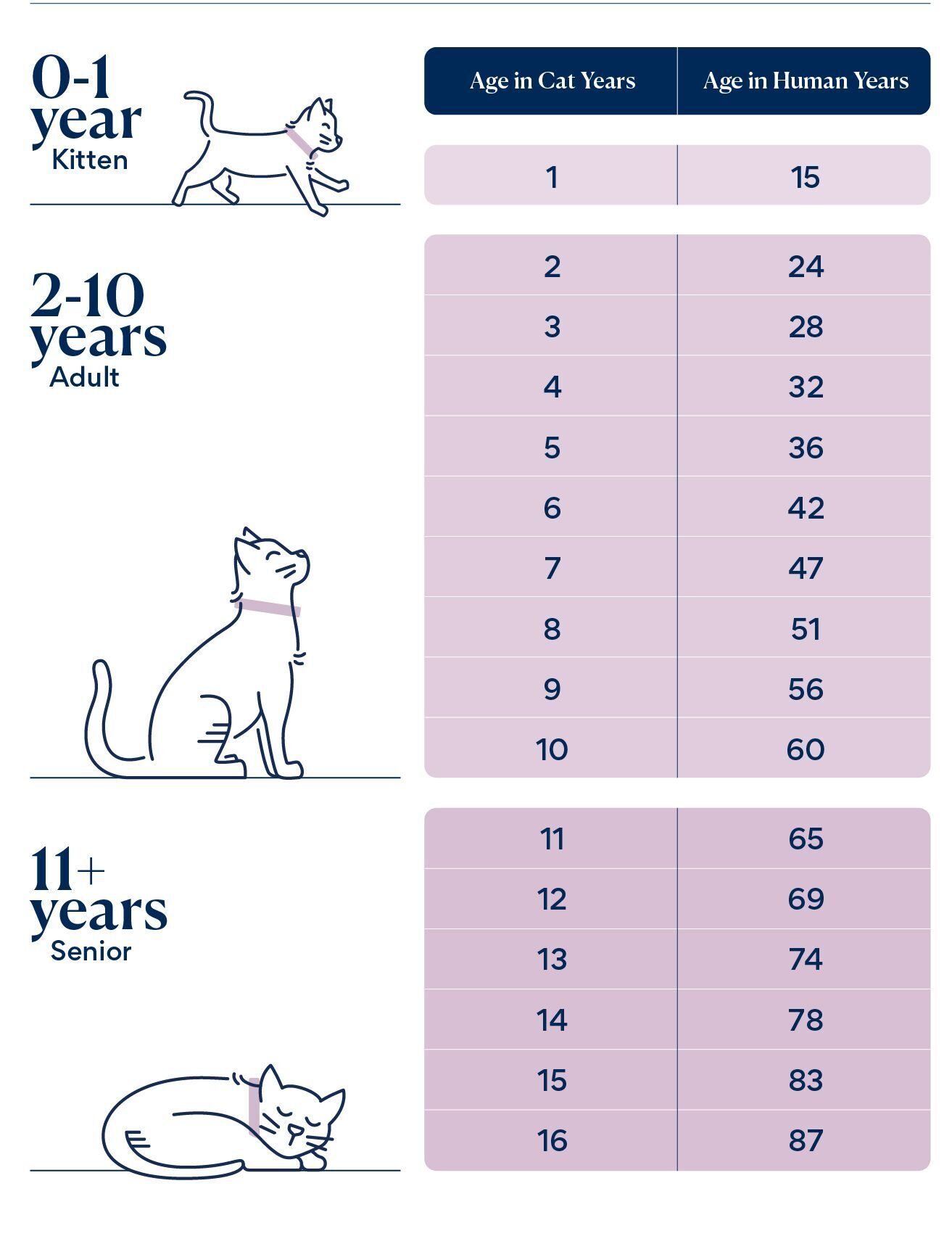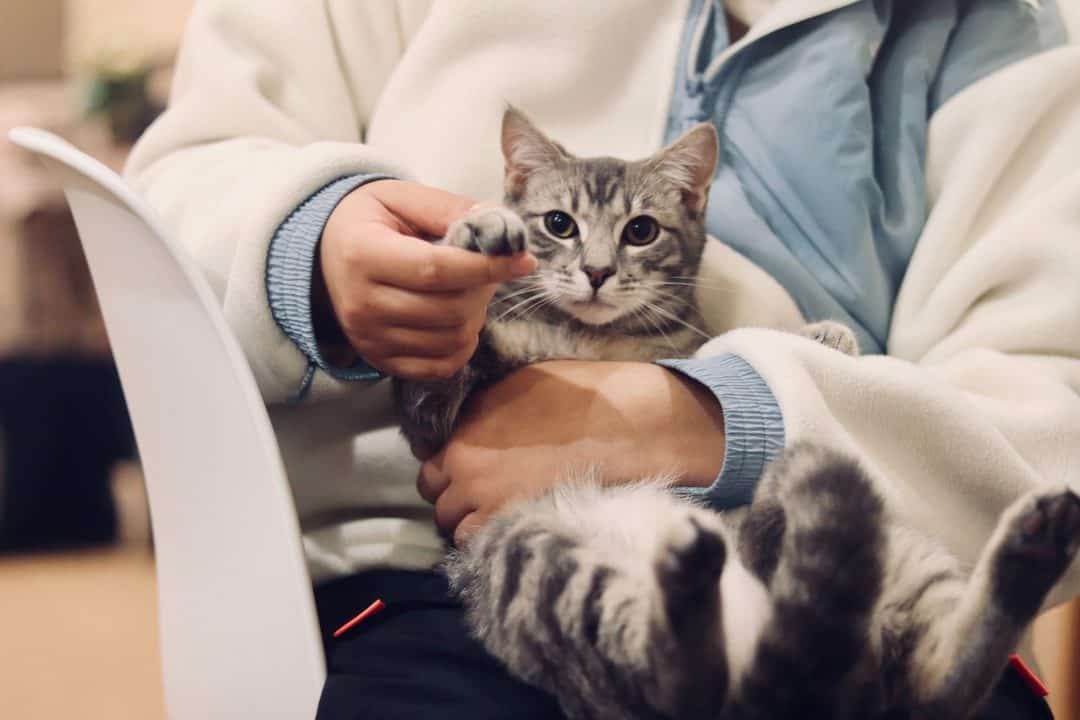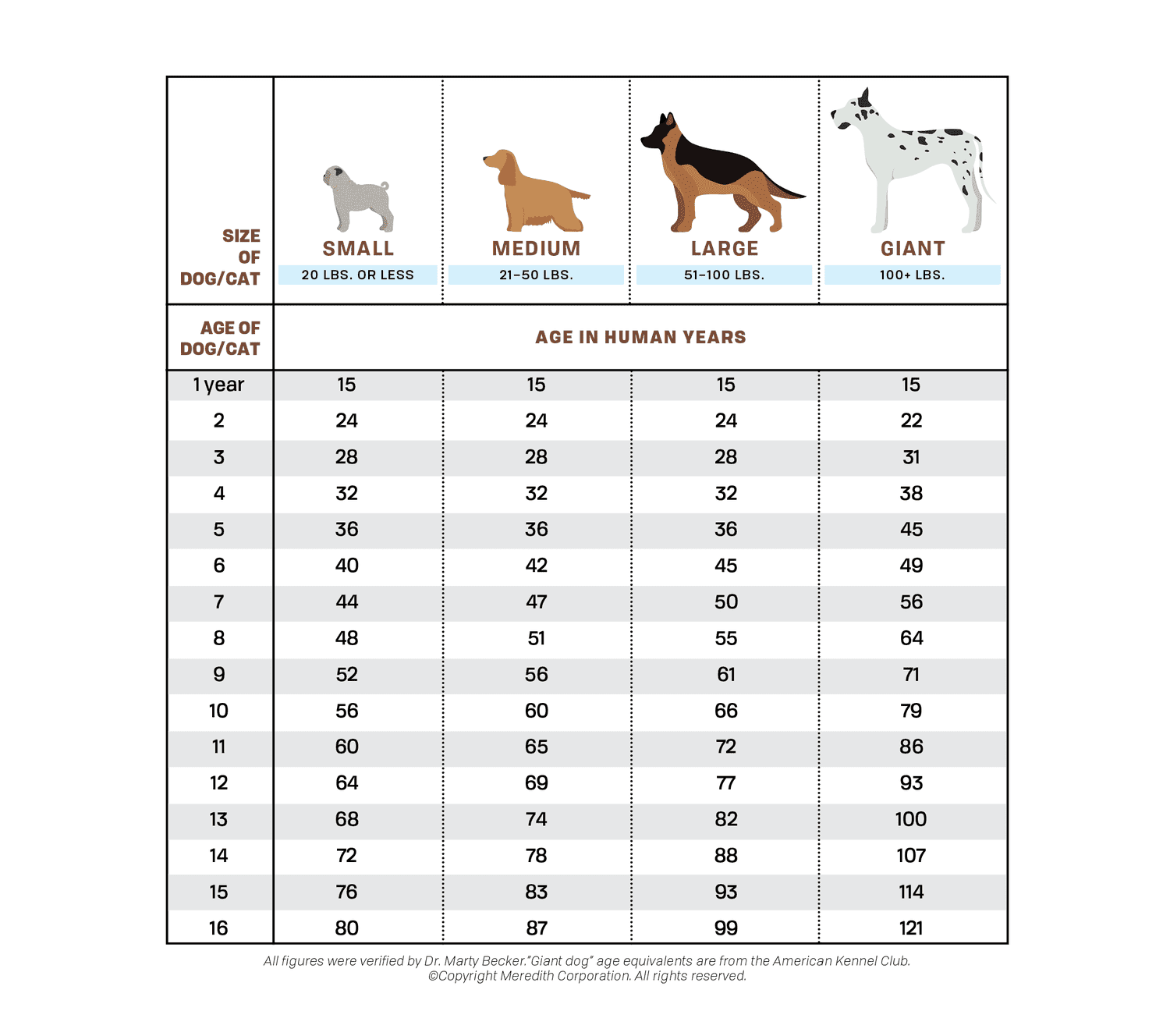Discover how to determine your cat's age in human years and why it's important. Understand their life stages for better care and well-being. Find out the simple formula to calculate their age accurately.
Reference used:
1. https://en.wikipedia.org/wiki/Cat_behavior
2.https://simple.wikipedia.org/wiki/Aging_in_cats
Key Takeaways:
- Cats age faster than humans, so their first year is equivalent to about 15 human years.
- After the first year, each cat year is equal to about 4 human years.
- Knowing your cat's age in human years can help you understand their life stage and potential health concerns.
- Regular veterinary check-ups are important for cats of all ages to ensure their well-being.
- Different cat breeds may age at slightly different rates, so it's helpful to consider breed-specific factors when converting their age to human years.
Understanding Your Cat's Age in Human Years
Why is it important to know your cat's age in human years?
Knowing your cat's age in human years is important because it helps you understand how old your cat is compared to humans. Cats and humans have different lifespans, so converting your cat's age can give you a better idea of their stage of life and what to expect as they get older. This knowledge can help you provide the best care for your furry friend.
For example, if you have a 10-year-old cat, understanding that they are equivalent to a 56-year-old human can help you recognize that they may be entering their senior years. This means they may require different types of food, more frequent vet check-ups, and extra attention to their overall health and well-being.
How do I figure out my cat's age in human years?
To figure out your cat's age in human years, you can use a simple formula. The common belief used to be that one cat year equals seven human years. However, this is not entirely accurate. Cats mature faster than humans during their first few years of life and then slow down as they get older.
A more accurate way to convert your cat's age into human years is by considering their first year as equivalent to 15 human years, the second year as equivalent to 9 human years, and each additional year as equivalent to 4 human years.
Example:
- If your cat is 2 years old, their approximate age in human years would be 24 (15 + 9).
- If your cat is 5 years old, their approximate age in human years would be 36 (15 + 9 + 4 + 4 + 4).
- If your cat is 10 years old, their approximate age in human years would be 56 (15 + 9 + (4 x 8)).
Keep in mind that this formula provides a rough estimate and individual cats may age differently based on factors such as breed, genetics, and overall health.
How to Figure Out Your Cat's Age in Human Years
Figuring out your cat's age in human years can be a helpful way to understand their life stage and provide appropriate care. While cats age differently than humans, there are methods to estimate their age in human years. One common method is to consider the first year of a cat's life as equivalent to 15 human years, the second year as equivalent to 9 human years, and each subsequent year as equivalent to 4 human years. However, this method may not be entirely accurate for all cats.
To get a more precise estimate of your cat's age in human years, it is important to consider their breed and size. Smaller breeds tend to have longer lifespans compared to larger breeds. Additionally, factors such as diet, exercise, and overall health can also influence how quickly or slowly a cat ages.
Factors Affecting Aging Rate
Several factors can affect how quickly or slowly a cat ages:
Breed: Different cat breeds have different average lifespans.
Diet: A balanced and nutritious diet can contribute to a healthier aging process.
Exercise: Regular physical activity helps maintain muscle mass and overall health.
Genetics: Some cats may have genetic predispositions that affect their aging process.
Veterinary Care: Regular check-ups and preventive care can help identify and address any health issues early on.
Consulting with a Veterinarian
If you want an accurate estimation of your cat's age in human years, it is best to consult with a veterinarian. They can assess various factors specific to your cat and provide you with a more precise calculation. Additionally, a veterinarian can also offer guidance on how to best care for your cat based on their age and individual needs.
The Importance of Converting Your Cat's Age to Human Years
Converting your cat's age to human years is important for several reasons. Firstly, it allows you to better understand and relate to your cat's stage of life. Cats go through different developmental stages just like humans do, and knowing their age in human years can help you provide appropriate care and attention.
Secondly, converting your cat's age to human years can also help you monitor their health and detect any potential age-related issues. Just like humans, cats may experience certain health problems as they get older, such as arthritis or kidney disease. By understanding their age in human years, you can be more proactive in providing the necessary healthcare and support.
Are Cats Older or Younger Than Their Actual Age in Human Years?
Cats are generally considered older than their actual age in human years. While a one-year-old cat is equivalent to about 15 human years, the aging process slows down as they grow older. For example, a ten-year-old cat is roughly equivalent to a 56-year-old human. This means that cats reach maturity faster than humans but tend to age more slowly once they reach adulthood.
It's important to keep in mind that this is just a rough estimate and individual cats may vary. Factors such as breed, genetics, lifestyle, and overall health can influence how quickly or slowly a cat ages compared to humans.
Factors to Consider When Converting Your Cat's Age to Human Years
When converting your cat's age to human years, there are several factors that should be taken into consideration:
Breed:
- Different cat breeds have different lifespans and aging patterns. For example, some breeds are known for living longer than others.
- Genetics: Just like humans, genetics play a role in how quickly or slowly a cat ages. Some cats may have genes that make them more prone to certain age-related health issues.
- Lifestyle: A cat's lifestyle can also impact their aging process. Cats that are well-nourished, physically active, and receive regular veterinary care may age more gracefully than those with poor nutrition or sedentary lifestyles.
A Simple Formula to Convert Your Cat's Age to Human Years
While there is no exact science to converting your cat's age to human years, a simple formula often used is:
Human Age = 15 + (Cat Age - 1) x 4
This formula assumes that the first year of a cat's life is equivalent to 15 human years, and each subsequent year is equivalent to 4 human years. However, it's important to remember that this is just an estimate and individual cats may age differently.
Do Cats Age at the Same Rate as Humans?
No, cats do not age at the same rate as humans. While they may reach maturity faster than humans, their aging process slows down once they reach adulthood. This means that a ten-year-old cat is not equivalent to a ten-year-old human in terms of physical and cognitive development. Understanding this difference in aging rates can help you provide appropriate care for your feline companion throughout their life stages.
The Benefits of Knowing Your Cat's Age in Human Years for Their Healthcare Needs
Knowing your cat's age in human years can be beneficial for their healthcare needs in several ways:
- Veterinary Care: Veterinarians often use a cat's age in human years as a reference point for determining appropriate healthcare interventions, such as vaccinations or screenings for age-related diseases.
- Diet and Nutrition: As cats age, their dietary needs may change. Knowing their age in human years can help you select the right type and amount of food to support their overall health and prevent obesity or malnutrition.
- Exercise and Enrichment: Age-appropriate exercise and mental stimulation are important for a cat's well-being. Understanding their age in human years can help you tailor their exercise routine and provide appropriate enrichment activities.
Common Misconceptions about Converting a Cat's Age to Human Years
There are a few common misconceptions when it comes to converting a cat's age to human years:
- One Year Equals Seven Human Years: The idea that one cat year is equivalent to seven human years is an oversimplification. Cats reach maturity faster than humans, so the first year of a cat's life is not equal to seven human years.
- All Cats Age at the Same Rate: Just like humans, individual cats age at different rates depending on various factors such as breed, genetics, lifestyle, and overall health. It's important to consider these factors when estimating your cat's age in human years.
| Conclusion: | By converting your cat's age to human years, you can better understand their life stage and provide them with appropriate care. Remember, cats age faster in their early years and then slow down. Keep track of their age and consult with a veterinarian for tailored advice on how to keep your feline friend happy and healthy! |
How do you calculate a cat's age?
In terms of aging, a cat's first year is equivalent to 15 human years. The second year adds an additional nine human years, making 2 cat years equivalent to around 24 human years. From then on, each additional human year is equivalent to four "cat years," meaning that a cat at age 3 would be about 28 human years old.
How old is my cat in human years?
A cat's first year is equivalent to approximately 15 human years, and the second year is equivalent to an additional nine years. After the second year, each subsequent year is equal to about four human years.
How long do cats normally live?
Indoor cats typically have a lifespan of 12-18 years, although some may live into their early 20s. The record for the oldest cat, Creme Puff, was an impressive 38 years. Outdoor cats, on the other hand, tend to have shorter lives due to the increased risk of accidents and attacks from dogs or vehicles.
How old is my cat if he is 10?
What is the equivalent human age for my cat? The age of a cat can be determined by whether it is an indoor or outdoor cat. For example, a 6-year-old indoor cat is equivalent to 40 human years, while a 6-year-old outdoor cat is equivalent to 68 human years. A 8-year-old indoor cat is equivalent to 48 human years, while a 8-year-old outdoor cat is equivalent to 72 human years. This pattern continues as the cat gets older.
What is the oldest living cat?
Flossie, a British tortoiseshell cat, currently holds the title for the oldest living cat at 27 years old. In human years, Flossie would be around 120 years old. Throughout her life, she has resided in four different homes.
Why does my 17 year old cat keep meowing?
Yowling in senior cats is often caused by conditions such as hyperthyroidism, chronic kidney disease, high blood pressure, arthritis, and senile cognitive dysfunction. Thankfully, all of these issues can be effectively treated.

















